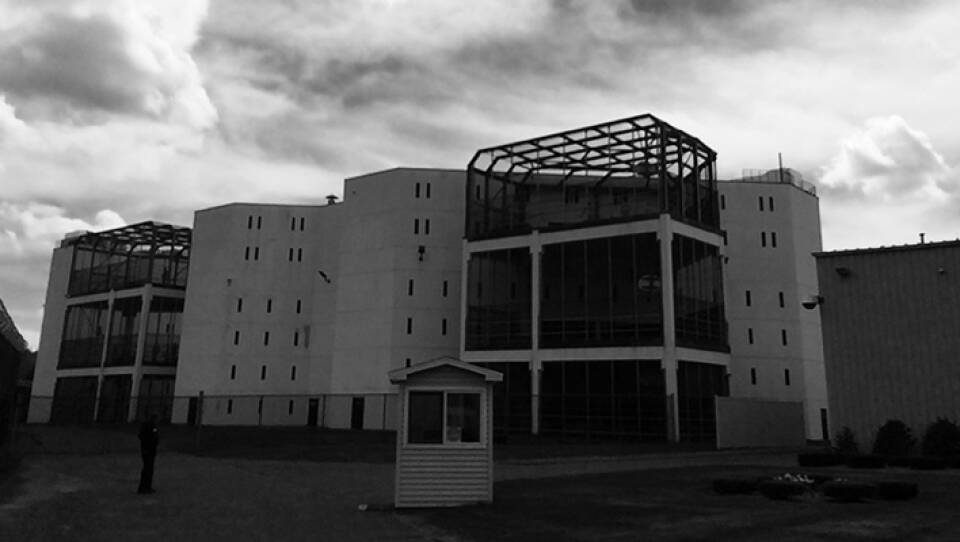As the state legislature begins considering a proposal to make prison phone calls free, sheriffs around the state say they are not opposed to the idea — but it's going to cost more than the $20 million currently being discussed to reimburse the prison system for the lost revenue.
Rep. Chynah Tyler’s no-cost call legislation was wrapped into the fiscal year 2023 House budget proposal, which would require prisons and jails to give prisoners free phone calls. It would allow sheriffs, the Department of Correction and Department of Youth Services to be reimbursed from a $20 million state fund to make up for the shortfall.
Senate Majority Leader Cindy Creem is pushing a similar provision in the Senate. “Free phone calls will help to maintain strong family connections, which studies have shown reduces recidivism,” Creem said. “The current cost of phone calls is exorbitant and much higher than it need be, in large part, due to commissions that are paid back to the institutions from the service provider.”
Hampden County Sheriff Nick Cocchi told GBH News he supports the bill in principle, but that the $20 million figure would have to increase, even if it’s a “good-faith effort” to make up for lost commissions from phone calls that pay for prisoner services.
“I need $1,000,000 from the legislature to recover the loss that I would have in commissions that go immediately back to the justice-involved men and women,” he said. “And I’m one county.”
But Cocchi said conversations with the legislature have been “positive” and “fruitful.”
“With the work we've been doing with the House and Senate in educating them on where those monies go, [I hope it] would lead us to upping that total from $20 million to a necessary and appropriate amount,” Cocchi said.
Sheriff’s offices have implemented some free call time and reduced rates in recent years. Cocchi launched two free hours of weekly phone time at the beginning of the pandemic, which remains in effect. Beyond that, the county collects 12 cents per minute, the lowest rate of any county in the state.
The fees support programs like the Pioneer Valley Transportation Authority bus from downtown Springfield to the Ludlow jail, which comes at an annual cost of $100,000. The line provides a way for families to visit their incarcerated relatives if they are unable to afford transportation.
Funds also go to GED testing, culinary training, mental health providers and release planning. The county collected over $679,100 in phone commissions last year, lower than prior years because of the free calls.
The Suffolk County sheriff’s department received over $620,000 from calls made by detainees in their facilities last year. Over half a million went toward “programming,” and $113,383 went into paid prisoner work assignments, according to a spokesman.
Sheriff Steven Tompkins said the funds are used to keep the telephone systems working. Calls are important to keep prisoners connected to families, he said, and for surveillance.
“We gather a fair amount of intel from the telephone calls, frankly,” he said.
Tompkins, who also serves as president of the Massachusetts Sheriffs’ Association, said the phone calls are not a cash cow for the prisons.
“I don't mean to be flippant with you, but there are people that have talked to us about the fact that they think that this is a profit center. It is not a profit center,” he said.
“The money that comes in from the phone calls is utilized for maintaining the systems for surveillance utilized by the correctional facilities and for inmate programming,” Tompkins added. “I just don't think $20 million covers all of that for 14 county sheriffs, the DOC and DYS.”
He and other sheriffs didn’t give an exact amount the legislature could offer.
In 2021, the Massachusetts Sheriffs’ Association announced that all county jails will move to charging a maximum of 14 cents per minute, or $2.10 for a 15-minute phone call.
Norfolk County Sheriff’s office is already planning to give up commission from phone calls as the county moves to a new tablet-based system, according to spokesman Garrett Nichols. Currently, the county charges 14 cents a minute, down from 2020’s range of 16 to 25 cents per minute. In 2021, the county received $125,093 in commissions from the calls.
Other counties provided limited information, or didn’t respond to inquiries from GBH News. Most have a rate of 14 cents per minute, and all offer 10 free minutes per week.
The fees are paid by those who receive phone calls, not inmates who make them, which can create a burden for families communicating with loved ones behind bars. Erika Algarin pays over $300 a month to communicate with her husband, who is incarcerated at Essex County jail. He talks to his two kids, ages 3 and 10. “He’s such a huge part of their schedule,” she said.
The day she spoke to GBH News, Algarin had spoken to her husband for 47 minutes, costing over $7. She said rates were more expensive at Suffolk County House of Corrections, where he was originally incarcerated. She is also charged $3 every time she adds funds to her phone account.
Algarin said the family has “cut back” on calls, but it’s difficult when the kids want to talk often.
“It's usually good morning and good night because we try to cut it somewhat short. My daughter does homework with him at the evening time,” Algarin said.
She has three jobs, including as a full-time social worker and working at a substance abuse center on weekends, and just wants to see some relief for the phone bills. “The money goes quickly,” she said.
Algarin said the agreement to drop the fees to 14 cents a minute was not enough, “especially if they can’t fix the phone connections and poor performance of the service.” She described dropped calls where she’s still paying for minutes of dead air time. “You can’t hear half the conversation.”
Legislators didn’t think the rate cut sufficed either.
Even with the new rates, Massachusetts residents are still spending $10.5 million to speak with prisoners annually, according to an analysis sent to Creem and Tyler by the advocacy group Worth Rises.
The House version of the legislation proposes the creation of a Communications Access Trust with seed funding of $20 million to cover revenue losses for sheriffs and the DOC, if they submit receipts of the services.
The bill would also prohibit sheriffs and the Department of Correction from limiting in-person visits or collecting commissions from calls.
“What we don't want to see is the cost of calls being eliminated, and sheriffs and correctional officials being able to limit access to calls and ration those calls out,” said Elizabeth Matos, executive director at Prisoners’ Legal Services, which has advocated for no-cost calls.
Hampden County Sheriff Cocchi believes calls will still have to be restricted.
“If we have unlimited phone calling, we would have tension in the housing units. We'd have fights because people would be occupying them and taking control over them,” he said.
Cocchi said he would rather get programming help for the 87% of Hampden County prisoners with substance abuse issues or the 56% with mental health issues than have them sitting on a phone talking to family.
Differences between the House and Senate bills, including eliminating commissions collection, or making that $20 million pool of money larger, will be negotiated in conference committees.
Senate Minority Leader Bruce Tarr filed an amendment proposing a streamlined rate-setting process after the Supreme Judicial Court ruled last week that Bristol County Sheriff Thomas Hodgson has the authority to collect revenue through phone fees for the jail, ending a four-year legal dispute.
The prison calls have generated a significant revenue stream for some sheriffs in prior years. Between 2011 and 2013, Hodgson’s office had a contract with phone service provider Securus that paid the company more than $200,000 annually for technology and onsite administrators, as well as 48% of the commission on calls. That contract still generated $1.17 million in revenue for the sheriff’s office.
In 2015 the sheriff's office signed a new four-year deal with Securus, which eliminated commissions and providing Hodgson’s office with a $820,000 one-time payment. That contact was extended until Bristol County adopted the 14-cent-per-minute charge in 2021.
The court ruling upholing the fees is “absolutely a win for taxpayers,” Hodgson told GBH News via email. “It has always been my belief as the Sheriff of Bristol County that one of my most fundamental responsibilities is to minimize the burden on taxpayers for the rising costs of prison operations.”
Hodgson’s office told GBH News that the money goes toward education, vocational, substance abuse, and job training program, and also funds the IT infrastructure for the actual phone system.







